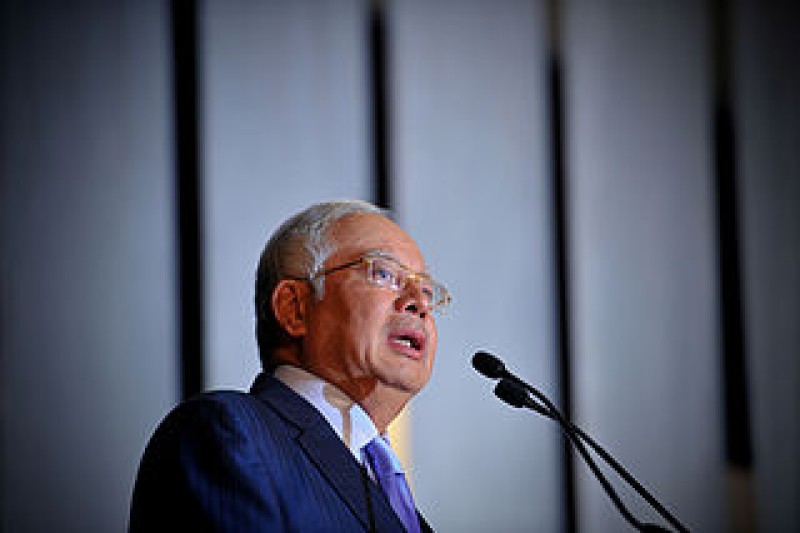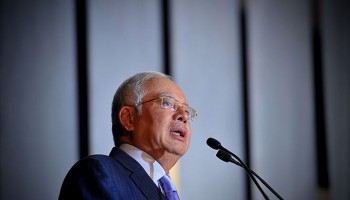The Anti-Fake News 2018 bill allows sentences up to 10 years in prison for circulating or creating “any news, information, data and reports, which is or are wholly or partly false, whether in the form of features, visuals or audio recordings or in any other form capable of suggesting words or ideas.”
Zaid Ibrahim, a former minister of legal affairs told CNN, “This law is necessary for Najib, but not the country. He needs this to put fear in people, that they can go to jail if they criticize him."
Prime Minister Najib Razak was chair of the Malaysian sovereign wealth fund 1Malaysia Development Berhad (1MDB) which is embroiled in a multi-billion dollar corruption scandal.
In 2009, the Malaysian government created 1MDB to invest in property and infrastructure projects, yet over $4 billion dollars disappeared from the fund. Najib was accused of having taken $681 million for himself but was later cleared of wrongdoing by the country’s anti-corruption body, according to CNN.
“Malaysia’s ‘fake news’ bill is a blatant attempt by the government to prevent any and all news that it doesn’t like, whether about corruption or elections,” said Brad Adams, Asia director at Human Rights Watch.
“The Malaysian government has no monopoly on the truth, but it’s attempting to be the arbiter of what can and can’t be said and written,” he said, calling for the bill to be withdrawn.
The legislation does not account for accidental errors and adds to a climate of censorship created by the country’s defamation laws. Platforms hosting the targeted news will also be fined $26,000 for failing to remove “fake news.”
“Faced with short review periods and the risk of steep fines, companies will have little incentive to err on the side of free expression,” Adams explained.
Information pertaining to 1MDB that has not been verified by the Malaysian government would be considered “fake news,” according to The Star.
"The Government views that other than the information that has been verified by the Government, all other information is deemed as fake news," said Deputy Communications and Multimedia Minister Datuk Jailani Johari, reported The Star.
The law would also affect publicizing so-called fake news in other parts of the world if the focus of the news is on Malaysia or Malaysian citizens.






